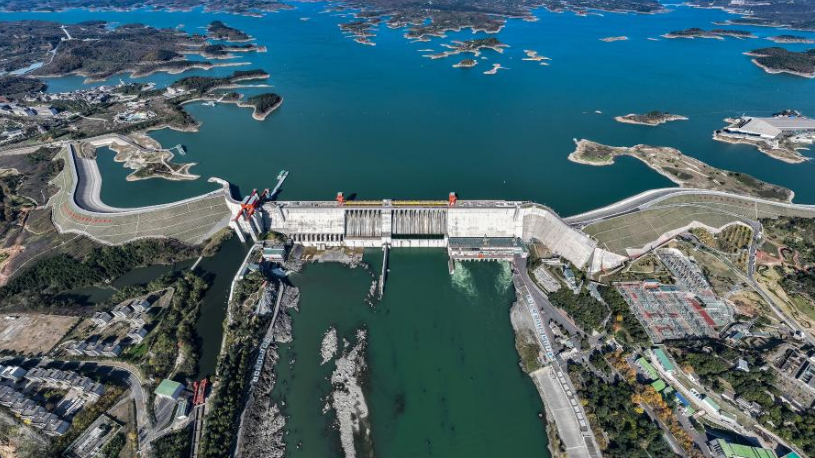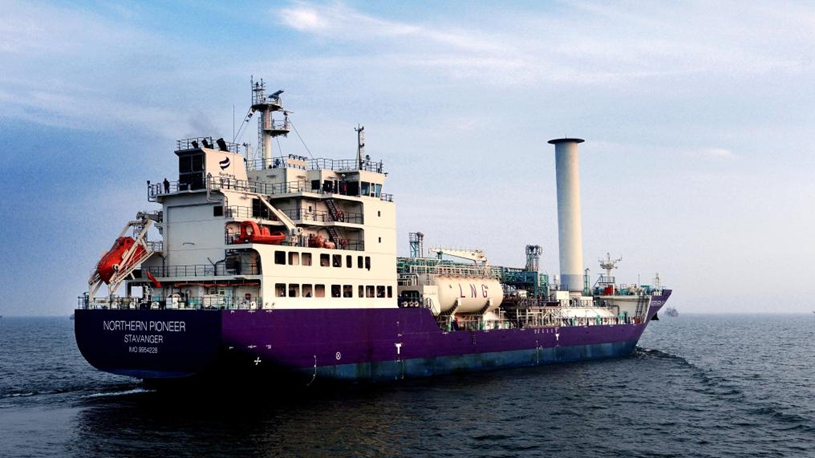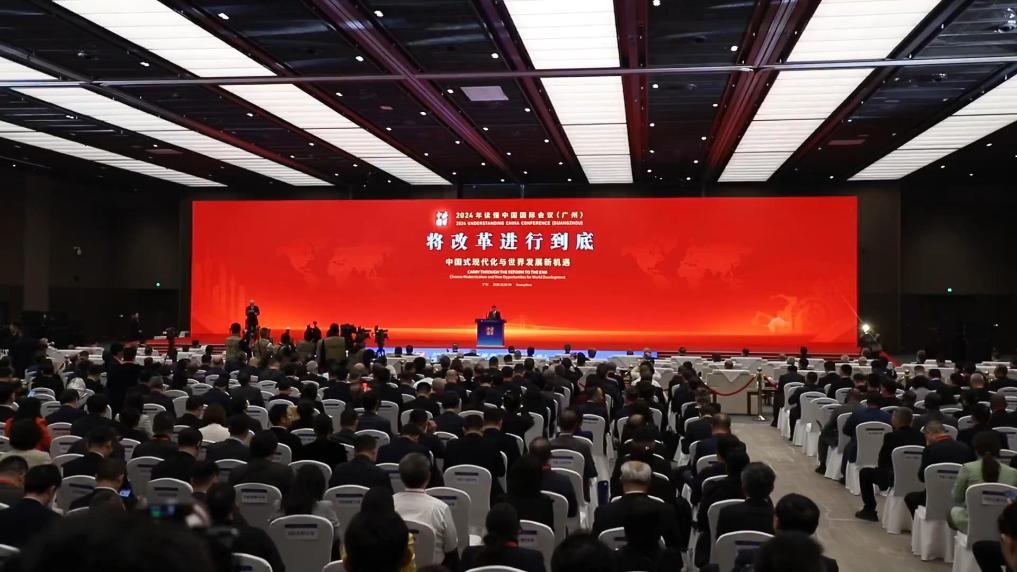Xinhua Headlines: Reaching 100,000th-trip milestone, China-Europe freight train service enhances connectivity, win-win cooperation
Source: Xinhua
Editor: huaxia
2024-12-04 21:11:33
* China-Europe freight trains have evolved into a cornerstone of the Belt and Road Initiative (BRI), promoting trade and connectivity between Europe and Asia.
* The railway service's stability and reliability has positioned it as a trusted pillar of logistical efficiency in today's complex global economy.
* Efficient transport connections are a prerequisite for the continuation and deepening of diplomatic relations between China and the EU.
by Xinhua writer Li Hanlin
DUISBURG, Germany, Dec. 4 (Xinhua) -- The 100,000th China-Europe freight train arrived here Tuesday morning, marking a historic milestone for this rail service.
Coded X8083, the train departed from southwest China's Chongqing Municipality, and arrived at Duisburg's terminal at 9:10 a.m. local time. Its cargo -- comprising electronics, industrial parts, and household appliances -- was quickly unloaded for distribution to multiple destinations across Europe.
Since its inception 13 years ago, the China-Europe freight trains have transported more than 11 million TEUs (twenty-foot equivalent units) of goods, valued at over 420 billion U.S. dollars. The service has also evolved into a cornerstone of the Belt and Road Initiative (BRI), promoting trade and connectivity between Europe and Asia.
TRANSFORMING INDUSTRIAL TOWN INTO LOGISTICS HUB
Once an industrial powerhouse, Duisburg has evolved into a key logistics hub, with the China-Europe freight train playing a pivotal role. The city's port now handles over 4 million TEUs annually, managing a diverse range of goods including apparel, automotive components, food, chemicals, and machinery.
Chang Haitao, acting consul general of China in Dusseldorf, underscored the significance of Duisburg Port as a critical hub for China-Europe freight trains in Western Europe boasting the highest cargo volume and value.
"The service has enhanced transport efficiency and trade ties, showcasing the BRI's role in fostering connectivity," Chang said.
"The port now handles 30 percent of the total rail trade between Europe and China, attracting numerous Chinese logistics and e-commerce companies," said Markus Bangen, CEO of Duisburger Hafen AG (Duisport), a German company running the port of Duisburg.
"The trains have significantly impacted trade development between China and Europe. For Duisburg and its port, this has been a tremendous boost, enhancing their growth and strengthening their connections to China," said Bangen.
Markus Teuber, China affairs commissioner for the City of Duisburg, highlighted the remarkable growth and the railway connection between Duisburg and China. "The connection began with just one train per week and has now expanded to 30 to 40 trains weekly, linking Duisburg with 15 industrial areas across China," he said.
Teuber emphasized that this development is crucial for employment and economic growth in Duisburg. "The city of Duisburg fully supports and welcomes this connection, recognizing its vital role in fostering regional development and creating opportunities," he added.
OPTIMIZING SUPPLY CHAINS ACROSS INDUSTRIES
Combining efficiency, stability, and environmentally friendly logistics, the China-Europe freight train has offered a transport option that is faster than sea freight and more cost-effective than air transport.
Christian Hinkel, corporate communications manager at Deichmann, a leading German footwear retailer with over 4,700 stores worldwide, stressed the train's transformative impact on supply chain stability. "The China-Europe freight train stabilizes the supply chain between Germany and China, enabling faster deliveries and better responsiveness to consumer demands," he explained, adding that Deichmann relies heavily on its 25 long-term Chinese partners.
For the pharmaceutical industry, the railway offers specialized solutions. Hanno Reeser, a strategic expert at New Silk Way Logistics in the Netherlands, emphasized its ability to provide temperature-controlled transportation, a crucial factor for pharmaceutical shipments.
"We transport 20-25 temperature-controlled containers to China weekly, ensuring compliance with strict requirements," he said, noting that this service strikes an ideal balance between cost and speed, which is essential for time-sensitive industries.
The railway service's innovative financial model is proving beneficial, particularly in the automotive sector. Fu Shigang, chairman of Carlsson (Chongqing) Import & Export, noted that rail bills of lading can now be used as collateral for secure international letters of credit. "Using a rail bill of lading, we imported 10 cars from Germany with 150,000 euros in cash," Fu said, illustrating how the model helps alleviate financial strain for smaller enterprises.
Olaf Krueger, chairman of the International Rail Freight Business Association, highlighted the railway's efficiency as a competitive edge for European businesses. "Its stability and reliability ensure just-in-time deliveries, optimizing supply chains for industries where timely delivery is critical," Krueger said. This capability has positioned the China-Europe freight train as a trusted pillar of logistical efficiency in today's complex global economy.
HEADED TOWARD SHARED GROWTH
Despite rising unilateralism and protectionism in some Western countries in recent years, the China-Europe freight train service has demonstrated significant growth, underscoring that China-Europe cooperation not only benefits both sides but also serves as a stabilizing force in global trade.
During the COVID-19 pandemic and subsequent global shipping disruptions, the railway service became the preferred logistics solution for many enterprises, providing crucial support in maintaining the smooth flow of global trade, said Krueger.
Michael Schumann, chairman of the German Federal Association for Economic Development and Foreign Trade, praised the train as a hallmark of global connectivity.
"The success of this initiative should inspire us to think deeply about the importance of connectivity for prosperity and development," Schumann said, urging European leaders to prioritize such infrastructure in shaping future Chinese-European strategies.
Looking ahead, Krueger expressed optimism about the railway's potential to further strengthen China-Europe ties. "Efficient transport connections are a prerequisite for the continuation and deepening of diplomatic relations between China and the EU."
Schumann echoed the sentiment, describing it as "the beginning of history and a gateway to future opportunities." He said that the China-Europe freight train continues to create a rich narrative of collaboration, innovation, and mutual success.■













Comments